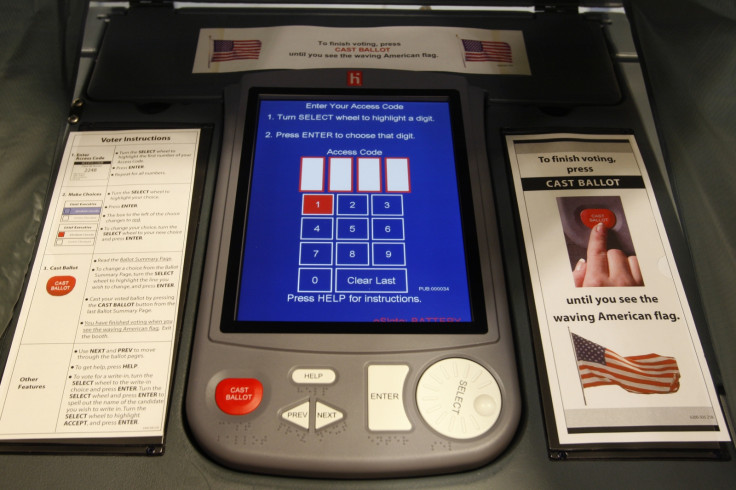Could the US election be hacked to rig the results?
Outdated, insecure electronic systems could be cyberattacked and influence result.
Could the US Presidential election be hacked to influence the result? It sounds like a thought plucked from the mind of a conspiracy theorist but its plausibility is worryingly high after electronic voting systems are seen as open targets.
The race to the White House is gaining momentum to what will be a historic election on 8 November but fear is mounting that the whole thing could be compromised as e-voting systems used by the public across the country are known to be outdated and running software with varying levels of security.
Following the recent email hacks of the Democratic Party, including Hillary Clinton's own account, fear is growing from a number of experts that the election could be victim to a malicious attack that could influence the outcome. And who might be the culprit? Some are eyeing Russia as individuals who may be ready to strike during the ballot process in order to favour a Trump win, which is alleged would come with some assumed pro-Russian policies.
So if hackers could get to the personal email of Hillary Clinton, how hard is it for them to hit the e-voting systems? Not hard at all, it seems.
In June 2016 Arizona's voter registration system was taken offline after it was discovered it had been hacked and only weeks later the same happened to an Illinois voter database and had to be shut down also. It's something that has been a historical problem.
A paper by Richard Forno, a cybersecurity lecturer at the University of Maryland, explains that in 2006 a Princeton computer science professor Ed Felten demonstrated how to install a self-propagating piece of vote-changing malware on Diebold e-voting systems in less than a minute, and in 2011, technicians at the Argonne National Laboratory showed how to hack e-voting machines remotely and change voting data.

Old and vulnerable
The potential gaping vulnerabilities lie with the fact a majority of e-voting systems in use over 10-years old (some being used aren't even manufactured any more) – a problem that is made worse by them all being run locally with all differing kinds of software, rather than a single centralised one that can be updated, patched and maintained as a whole. Being a widespread, distributed network means there are plenty of points of vulnerability. Wired reported that some systems are still running on Windows XP, which Microsoft hasn't released a security patch for since 2014.
"Wherever there's a fully electronic voting system, there's potential for tampering of some kind," said Pamela Smith, president of Verified Voting, in a report by NPR.
"If you can get at an election management system, you could potentially alter results, or muddy up the results, or you could even just shed doubt on the outcome because you make it clear that there's been tampering," she added.
Following the 2000 vote-counting chaos in Florida the Help America Vote Act (HAVA) was established to reform voting processes and procedures. Electronic systems were then first introduced at the 2002 Georgia state elections to replace punchcard style paper voting methods. But it still hasn't been a smooth ride.
Funding is a problem with an estimated $1bn needed to replace all of the older system. But newer technologies could be introduced that are cheaper. Microsoft provided touchscreen technology to the Iowa caucus vote to help eliminate human error, however this was met with plenty of scepticism after conspiracies swirled around how it was to help rig the results in favour of Marco Rubio, who Microsoft had donated money to his campaign.
Hack unlikely
But before palpitations and panic set in it's worth reminding ourselves of a few grounding points. In the 2016 election 80% of voters will be using an electronic system backed-up with a paper trail, which can be double-checked. In fact, as Wired points out more than half the states conduct post-election auditing against electronic and paper to ensure votes are accurate.
With the DNC hacks and government leaks around the world, the public will understandably have a sense of unease going into the 2016 election but with paper trail systems in place it would be difficult for cyberattackers to make an impact. However, the state of America's ageing electronic voting system should remain a worry for its government with the Brennan Center for Justice report on the system concluding that "we ignore it at our peril".
© Copyright IBTimes 2025. All rights reserved.






















